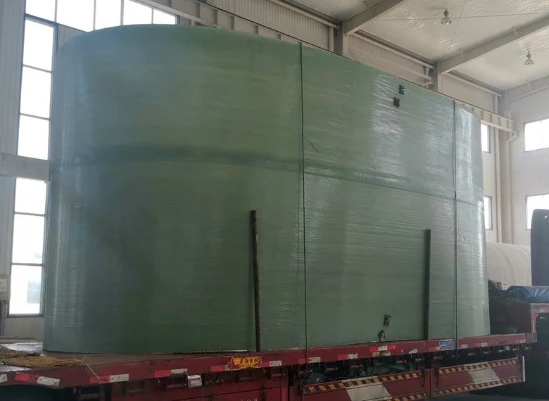
-
 Afrikaans
Afrikaans -
 Albanian
Albanian -
 Amharic
Amharic -
 Arabic
Arabic -
 Armenian
Armenian -
 Azerbaijani
Azerbaijani -
 Basque
Basque -
 Belarusian
Belarusian -
 Bengali
Bengali -
 Bosnian
Bosnian -
 Bulgarian
Bulgarian -
 Catalan
Catalan -
 Cebuano
Cebuano -
 China
China -
 China (Taiwan)
China (Taiwan) -
 Corsican
Corsican -
 Croatian
Croatian -
 Czech
Czech -
 Danish
Danish -
 Dutch
Dutch -
 English
English -
 Esperanto
Esperanto -
 Estonian
Estonian -
 Finnish
Finnish -
 French
French -
 Frisian
Frisian -
 Galician
Galician -
 Georgian
Georgian -
 German
German -
 Greek
Greek -
 Gujarati
Gujarati -
 Haitian Creole
Haitian Creole -
 hausa
hausa -
 hawaiian
hawaiian -
 Hebrew
Hebrew -
 Hindi
Hindi -
 Miao
Miao -
 Hungarian
Hungarian -
 Icelandic
Icelandic -
 igbo
igbo -
 Indonesian
Indonesian -
 irish
irish -
 Italian
Italian -
 Japanese
Japanese -
 Javanese
Javanese -
 Kannada
Kannada -
 kazakh
kazakh -
 Khmer
Khmer -
 Rwandese
Rwandese -
 Korean
Korean -
 Kurdish
Kurdish -
 Kyrgyz
Kyrgyz -
 Lao
Lao -
 Latin
Latin -
 Latvian
Latvian -
 Lithuanian
Lithuanian -
 Luxembourgish
Luxembourgish -
 Macedonian
Macedonian -
 Malgashi
Malgashi -
 Malay
Malay -
 Malayalam
Malayalam -
 Maltese
Maltese -
 Maori
Maori -
 Marathi
Marathi -
 Mongolian
Mongolian -
 Myanmar
Myanmar -
 Nepali
Nepali -
 Norwegian
Norwegian -
 Norwegian
Norwegian -
 Occitan
Occitan -
 Pashto
Pashto -
 Persian
Persian -
 Polish
Polish -
 Portuguese
Portuguese -
 Punjabi
Punjabi -
 Romanian
Romanian -
 Russian
Russian -
 Samoan
Samoan -
 Scottish Gaelic
Scottish Gaelic -
 Serbian
Serbian -
 Sesotho
Sesotho -
 Shona
Shona -
 Sindhi
Sindhi -
 Sinhala
Sinhala -
 Slovak
Slovak -
 Slovenian
Slovenian -
 Somali
Somali -
 Spanish
Spanish -
 Sundanese
Sundanese -
 Swahili
Swahili -
 Swedish
Swedish -
 Tagalog
Tagalog -
 Tajik
Tajik -
 Tamil
Tamil -
 Tatar
Tatar -
 Telugu
Telugu -
 Thai
Thai -
 Turkish
Turkish -
 Turkmen
Turkmen -
 Ukrainian
Ukrainian -
 Urdu
Urdu -
 Uighur
Uighur -
 Uzbek
Uzbek -
 Vietnamese
Vietnamese -
 Welsh
Welsh -
 Bantu
Bantu -
 Yiddish
Yiddish -
 Yoruba
Yoruba -
 Zulu
Zulu
frp customized product
The Rise of FRP Customized Products Innovation Meets Demand
In the world of manufacturing, the push toward customization has never been stronger. As industries evolve, companies continuously seek innovative materials that not only meet practical needs but also allow for unique designs tailored to specific applications. One such material that has gained substantial attention is Fiber Reinforced Polymer (FRP). Its versatility, strength, and lightweight characteristics make it an ideal choice for customized products across various sectors.
FRP is composed of a polymer matrix reinforced with fibers, commonly glass, carbon, or aramid. This combination provides enhanced mechanical properties and allows for a wide range of applications, from construction to automotive and aerospace. The customizable nature of FRP products caters to the growing demand for tailored solutions that meet specific requirements.
The Rise of FRP Customized Products Innovation Meets Demand
Moreover, the lightweight nature of FRP products contributes significantly to their popularity. Compared to steel and concrete, FRP offers comparable strength at a fraction of the weight. This characteristic not only simplifies transportation and installation processes but also reduces the overall load on supporting structures. Customized FRP solutions can optimize weight distribution, improving the efficiency and safety of construction projects.
frp customized product

In the automotive sector, the demand for customized FRP components is surging. With consumers increasingly looking for personalized vehicles, manufacturers are leveraging FRP’s attributes to create bespoke body panels, spoilers, and interior features. These customized parts not only enhance the aesthetic appeal of vehicles but also contribute to fuel efficiency by reducing the overall weight of the cars.
Another growing field for FRP customization is the renewable energy sector, particularly in wind energy. Wind turbine blades manufactured with FRP can be tailored for specific environmental conditions, improving performance and durability. The ability to customize these components for various wind conditions and operational requirements ensures that energy production is maximized while minimizing maintenance costs.
Additionally, the marine industry greatly benefits from customized FRP products. The ability to design and produce custom hulls, decks, and interiors allows manufacturers to cater to specific client needs, whether for recreational boats or commercial vessels. FRP’s resistance to corrosion and water damage enhances the longevity and reliability of these products, making them a preferred choice for many marine applications.
The rise of FRP customized products also represents a shift toward sustainability. With growing concerns over environmental impacts, many manufacturers are focusing on producing lighter, more efficient products. FRP can contribute to energy savings throughout a product's life cycle, from manufacturing to transportation and use.
In conclusion, FRP customized products are not merely a trend; they represent a significant evolution in how industries approach design and manufacturing. The combination of strength, lightweight properties, and customization capabilities positions FRP as a material of choice in numerous applications. As technology advances and demands for personalized solutions continue to grow, the future of FRP customized products looks promising, paving the way for innovation across various sectors.
Latest news
-
Exploring the Benefits of Top Hammer Drifter Rods for Enhanced Drilling PerformanceNewsJun.10,2025
-
High-Precision Fiberglass Winding Machine for GRP/FRP Pipe Production – Reliable & Efficient SolutionsNewsJun.10,2025
-
FRP Pipes & Fittings for Shipbuilding - Corrosion-Resistant & LightweightNewsJun.09,2025
-
Premium FRP Flooring Solutions Durable & Slip-ResistantNewsJun.09,2025
-
Premium Fiberglass Rectangular Tanks Durable & Lightweight SolutionNewsJun.09,2025
-
Tapered Drill String Design Guide Durable Performance & UsesNewsJun.09,2025









